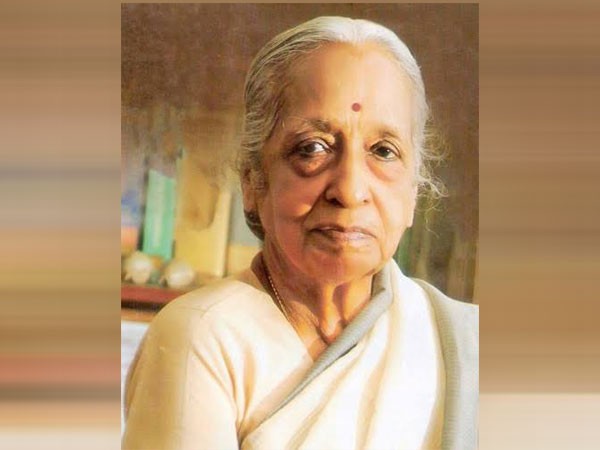
Dr. V. Shanta
Dr. V. Shanta was born on March 11, 1927, in Chennai, India, into an illustrious family that included two Nobel laureates: C.V. Raman and S. Chandrasekhar. Despite her privileged background, Shanta was driven by a deep sense of social responsibility from a young age. She completed her medical education from Madras Medical College, earning her MBBS in 1949 and her MD in Obstetrics and Gynecology in 1955.
Career Beginnings at the Cancer Institute (WIA)
In 1954, Dr. V. Shanta joined the Cancer Institute (WIA) in Chennai, which was founded by Dr. Muthulakshmi Reddy. At that time, cancer was a highly stigmatized disease in India, with limited treatment options and resources. The institute itself was in its nascent stage, struggling with inadequate infrastructure and funding.
Pioneering Cancer Treatment and Research
Dr. Shanta, along with her mentor Dr. S. Krishnamurthi, dedicated her life to transforming the Cancer Institute into a world-class facility. Despite facing numerous challenges, including societal prejudices and financial constraints, she worked tirelessly to ensure that the institute provided comprehensive cancer care. This included prevention, diagnosis, treatment, and rehabilitation.
Establishing Affordable and Accessible Care
One of Dr. Shanta’s core beliefs was that cancer treatment should be accessible to all, irrespective of their economic status. Under her leadership, the Cancer Institute became a pioneer in providing free or highly subsidized treatment to underprivileged patients. She also spearheaded numerous outreach programs to raise awareness about cancer prevention and early detection in rural areas.
Emphasis on Research and Education
Dr. Shanta emphasized the importance of research in understanding and combating cancer. She established various research departments within the institute, focusing on areas such as epidemiology, molecular biology, and clinical trials. Her efforts significantly contributed to the advancement of cancer research in India.
In addition to research, Dr. Shanta was committed to education and training. She ensured that the Cancer Institute provided rigorous training programs for doctors, nurses, and other healthcare professionals, thereby building a skilled workforce dedicated to cancer care.
Recognition and Awards
Dr. V. Shanta’s contributions to cancer care have been widely recognized both nationally and internationally. She received numerous awards, including:
Padma Shri (1986): One of India’s highest civilian honors, awarded for her exceptional service in the field of medicine.
Padma Bhushan (2006): Awarded for her distinguished service of high order in the field of cancer care and research.
Ramon Magsaysay Award (2005): Often considered Asia’s Nobel Prize, awarded for her dedicated and sustained efforts in providing comprehensive cancer care.
Padma Vibhushan (2016): The second-highest civilian award in India, recognizing her outstanding contribution to the field of oncology.
Legacy and Impact
Dr. V. Shanta’s work has had an enduring impact on cancer care in India. Under her leadership, the Cancer Institute (WIA) grew into a premier cancer treatment center, serving as a model for other institutions in the country. Her advocacy for affordable and accessible healthcare has influenced policy changes and has inspired countless healthcare professionals.
Inspirational Leadership
Throughout her career, Dr. Shanta remained a humble and dedicated physician, known for her compassion and commitment to patient care. Even in her later years, she continued to be actively involved in the institute’s activities, mentoring young doctors and advocating for better cancer care policies.
Continuing Her Mission
Dr. V. Shanta passed away on January 19, 2021, but her legacy lives on through the countless lives she touched and the institution she helped build. Her life’s work serves as a testament to the power of dedication, compassion, and perseverance in the face of adversity.
Conclusion
Dr. V. Shanta’s story is a remarkable example of how one individual’s unwavering commitment to a cause can bring about profound change. As an unsung hero, her contributions to cancer care in India have saved countless lives and have paved the way for future advancements in the field. Her legacy continues to inspire and guide the medical community, ensuring that her mission of providing compassionate and accessible cancer care endures.
“I learnt the principle to give and not take.there
Is a distinct sense of satisfaction
In working for others.”
By: S.S.Sharnitha


